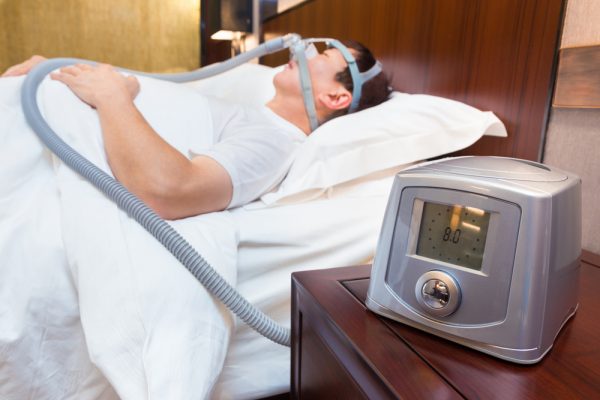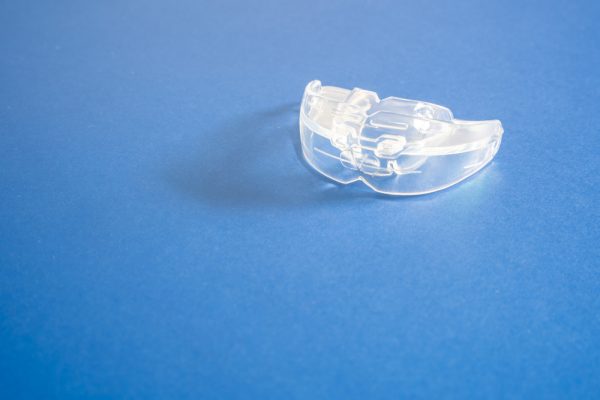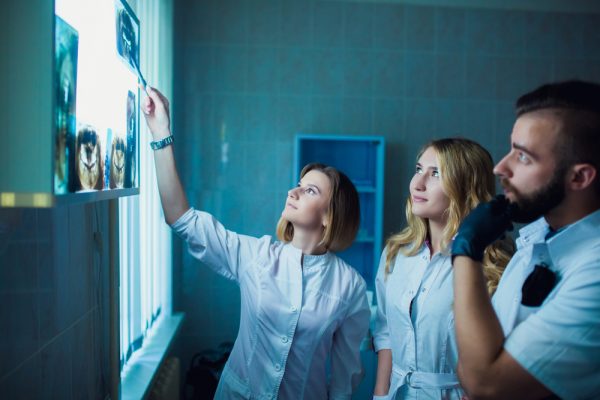Unlocking the Sleep-Anxiety Enigma: Do You Know the Connection?
Have you ever wondered if there’s a hidden link between your nightly rest and the persistent shadows of anxiety? At Birth & Fletcher Orthodontics, Fort Worth sleep dentist, Dr. Sheila Birth invites you to explore the intriguing correlation between sleep apnea, a serious and common sleep disorder, and anxiety. Patients diagnosed with anxiety often experience sleep disorders such as sleep apnea. Sleep fragmentation alongside mental disorders can make both situations worse. This is why it’s essential to seek treatment as soon as possible.
Find out how our solutions provide a more peaceful night’s sleep by dialing 817-502-9103. Join us as we explain these interconnected challenges and how we can help pave your way to a healthier, well-rested you.

What Is Anxiety?
Anxiety is a natural human response to stress, characterized by feelings of apprehension, worry, or fear. It’s a normal part of life and can serve as a protective mechanism, alerting us to potential threats and helping us stay focused in challenging situations. However, when anxiety becomes excessive, prolonged, or disproportionate to the situation at hand, it may develop into an anxiety disorder.
Anxiety disorders can manifest in various forms, such as generalized anxiety disorder, panic disorder, social anxiety disorder, and specific phobias. Symptoms of anxiety disorders may include:
- Restlessness
- Rapid heartbeat
- Muscle tension
- Irritability
- Difficulty concentrating
How Sleep Apnea Affects Anxiety and Anxiety Disorders
The relationship between sleep apnea and anxiety disorders is multifaceted and can be understood through several key factors:
Sleep Disruption
Sleep apnea disrupts the natural sleep cycle, preventing individuals from reaching the deep, restorative stages of sleep. This can lead to chronic sleep deprivation, which is a known trigger for increased stress, irritability, and emotional instability.
Physiological Stress Response
The repeated awakenings caused by sleep apnea trigger the body’s stress response, leading to an increase in stress hormones like cortisol. Elevated cortisol levels, especially during the night, can contribute to heightened anxiety and a persistent sense of alertness.
Oxygen Desaturation
During apneas, oxygen levels in the blood can drop. This oxygen desaturation can activate the body’s fight-or-flight response, triggering feelings of panic and anxiety. Over time, this physiological response may contribute to the development of anxiety disorders.
Impact on Mental Health
Chronic sleep apnea has been linked to worsening mental health and cognitive impairments, including difficulties with memory, concentration, and decision-making. These cognitive challenges can contribute to feelings of frustration and anxiety, impacting overall mental well-being.
Daytime Fatigue
Individuals with sleep apnea often experience excessive daytime sleepiness and fatigue due to disrupted sleep patterns. This fatigue can lead to irritability, mood swings, and a reduced ability to cope with stress, all of which are factors associated with anxiety.
Comorbidity with Anxiety Disorders
Research suggests a bidirectional relationship between sleep apnea and anxiety disorders. Not only can sleep apnea contribute to anxiety, but individuals with pre-existing anxiety disorders may also be more prone to developing or worsening sleep apnea.
By improving the quality and efficiency of sleep, individuals may experience a positive impact on their overall mental well-being, including a reduction in anxiety levels. Dr. Birth can provide effective treatments for sleep apnea, so you can feel less anxious during your waking hours.




How Treating Sleep Apnea Can Help Combat Anxiety
Sleep medicine like the kind offered by Dr. Birth can help address sleep apnea symptoms and potentially reduce the severity of anxiety disorders. Some of the many options for combatting anxiety disorder while combatting disturbed sleep include the following:
CPAP (Continuous Positive Airway Pressure) Therapy
CPAP therapy involves wearing a mask over the nose and/or mouth during sleep, delivering a continuous stream of air to keep the airways open. By maintaining a consistent flow of air, CPAP reduces the interruptions in breathing associated with sleep apnea. Improved and uninterrupted sleep can lead to reduced stress levels, contributing to a decrease in anxiety over time.
Oral Appliances
Oral appliances, such as mandibular advancement devices, are designed to reposition the jaw and tongue to prevent airway obstruction. These devices can be effective for individuals with mild to moderate sleep apnea. By improving airflow and reducing apneas, oral appliances contribute to better sleep quality, potentially alleviating anxiety linked to sleep disruption.
Lifestyle Changes
Lifestyle changes can elevate your approach to managing sleep apnea and anxiety by embracing habits that promote restful sleep. Establish a consistent sleep schedule, cultivate a calming bedtime routine, and create a peaceful bedroom environment. Limit caffeine and alcohol intake, engage in regular exercise, and turn off electronic devices before bedtime. Dr. Birth recommends addressing underlying medical conditions with your physician for personalized treatment options.
Myofunctional Exercises
Myofunctional exercises target the muscles of the tongue, throat, and face. By strengthening these muscles, individuals may experience improved control over their airways during sleep. This can be particularly beneficial for those with mild sleep apnea or as a complementary approach to other treatments. Enhanced muscle tone can contribute to reduced airway collapse and more stable breathing patterns, potentially decreasing anxiety-related symptoms.
Surgical Options
Surgical options for sleep apnea treatment, such as uvulopalatopharyngoplasty (UPPP), genioglossus advancement (GA), or maxillomandibular advancement (MMA), come into consideration when other interventions prove ineffective. These procedures target specific areas to alleviate airway obstruction, aiming to provide a more lasting solution for severe sleep apnea cases. Beyond addressing physical obstructions, successful surgical outcomes have shown potential benefits in alleviating associated anxiety symptoms. However, such interventions are carefully considered and recommended after a thorough evaluation by sleep specialists and otolaryngologists.




Frequently Asked Questions
Can anxiety be a symptom of untreated sleep apnea?
Are there specific age groups more prone to experiencing sleep apnea-related anxiety?
How can family members support someone dealing with both sleep apnea and anxiety?
Can sleep apnea cause anxiety attacks during the night?
Call Dr. Birth For More Restful Nights & Less Anxious Days
Fort Worth sleep dentist, Dr. Sheila Birth at Birth & Fletcher Orthodontics, invites you to explore our solutions for a more peaceful night’s sleep. Dial 817-502-9103 and schedule your consultation to learn more about the relationship between sleep apnea and anxiety, and how our comprehensive approach can pave the way to a healthier, well-rested you.
Don’t let the shadows of anxiety persist—join us in unlocking the sleep-anxiety enigma and take the first step towards a more serene and rejuvenating night’s sleep. We serve new and returning patients from Fort Worth and surrounding areas such as River Oaks, Arlington, & Westover Hills, TX.
